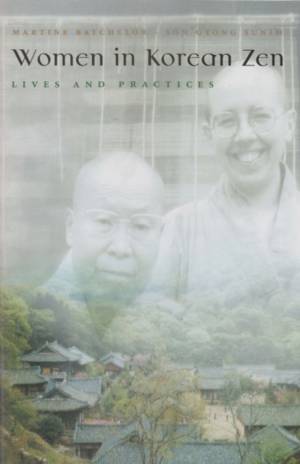
- Retrait gratuit dans votre magasin Club
- 7.000.000 titres dans notre catalogue
- Payer en toute sécurité
- Toujours un magasin près de chez vous
- Retrait gratuit dans votre magasin Club
- 7.000.000 titres dans notre catalogue
- Payer en toute sécurité
- Toujours un magasin près de chez vous
Description
In this engagingly written account, Martine Batchelor relays the challenges a new ordinand faces in adapting to Buddhist monastic life: the spicy food, the rigorous daily schedule, the distinctive clothes and undergarments, and the cultural misunderstandings inevitable between a French woman and her Korean colleagues. She reveals as well the genuine pleasures that derive from solitude, meditative training, and communion with the deeply religiouswhom the Buddhists call "good friends."
Batchelor has also recorded the oral history/autobiography of her teacher, the eminent nun Son'gyong Sunim, leader of the Zen meditation hall at Naewonsa. It is a profoundly moving, often light-hearted story that offers insight into the challenges facing a woman on the path to enlightenment at the beginning of the twentieth century. Original English translations of eleven of Son'gyong Sunim's poems on Buddhist themes make a graceful and thought-provoking coda to the two women's narratives. Western readers only familiar with Buddhist ideas of female inferiority will be surprised by the degree of spiritual equality and authority enjoyed by nuns in Korea. While American writings on Buddhism increasingly emphasize the therapeutic, self-help, and comforting aspects of Buddhist thought, Batchelor's text offers a bracing and timely reminder of the strict discipline required in traditional Buddhism.Spécifications
Parties prenantes
- Auteur(s) :
- Editeur:
Contenu
- Nombre de pages :
- 144
- Langue:
- Anglais
- Collection :
Caractéristiques
- EAN:
- 9780815608424
- Date de parution :
- 01-03-06
- Format:
- Livre relié
- Format numérique:
- Genaaid
- Dimensions :
- 150 mm x 222 mm
- Poids :
- 317 g







